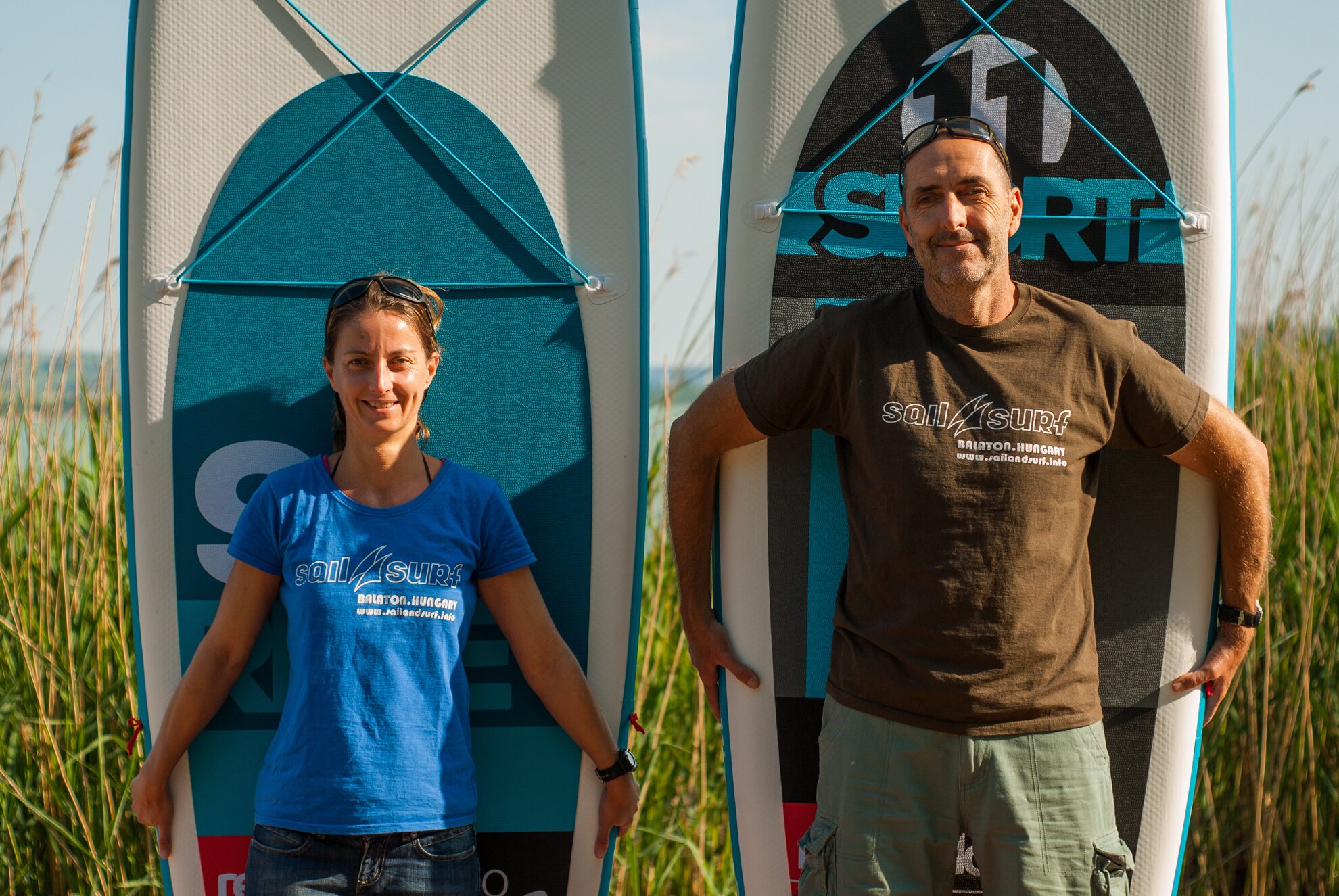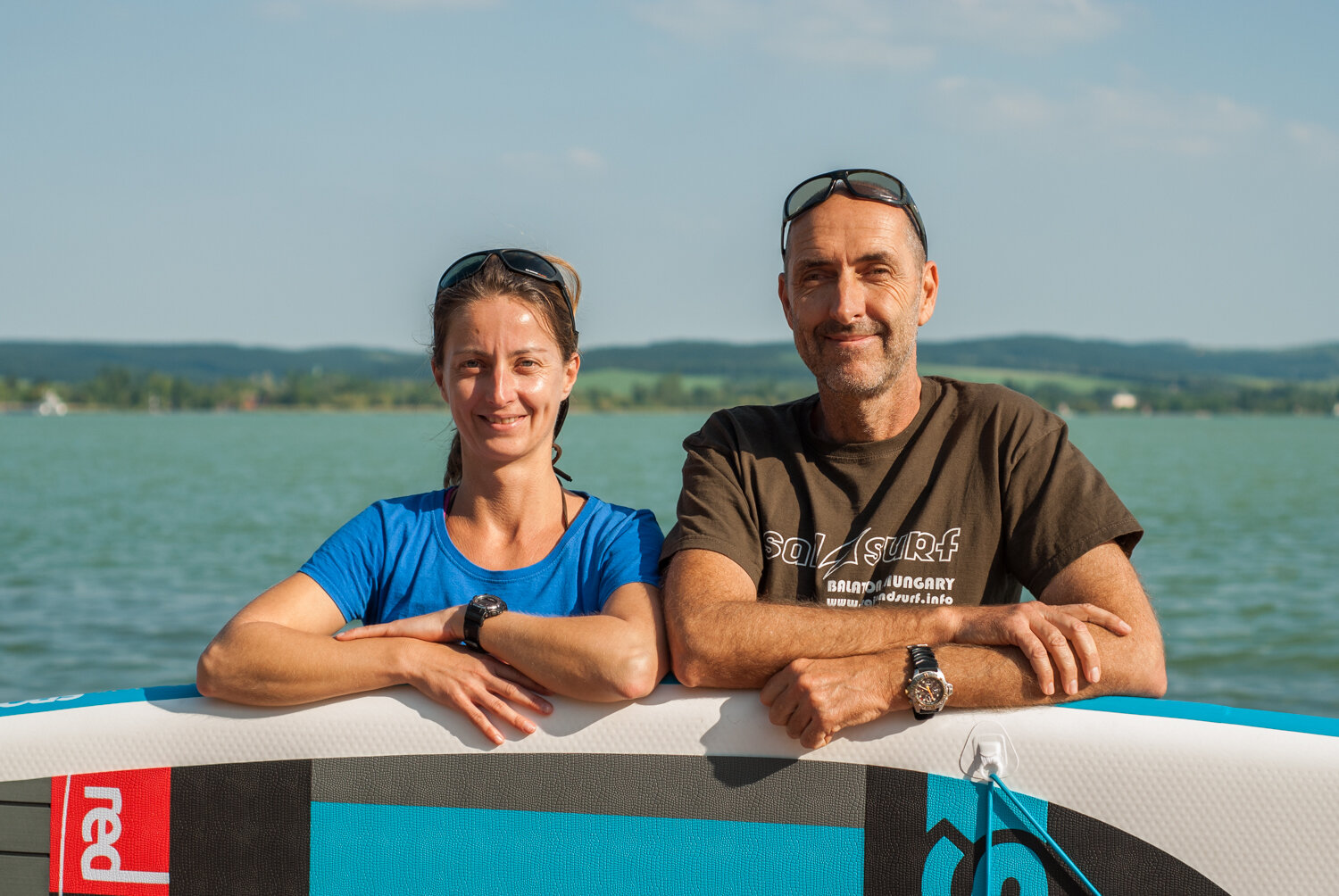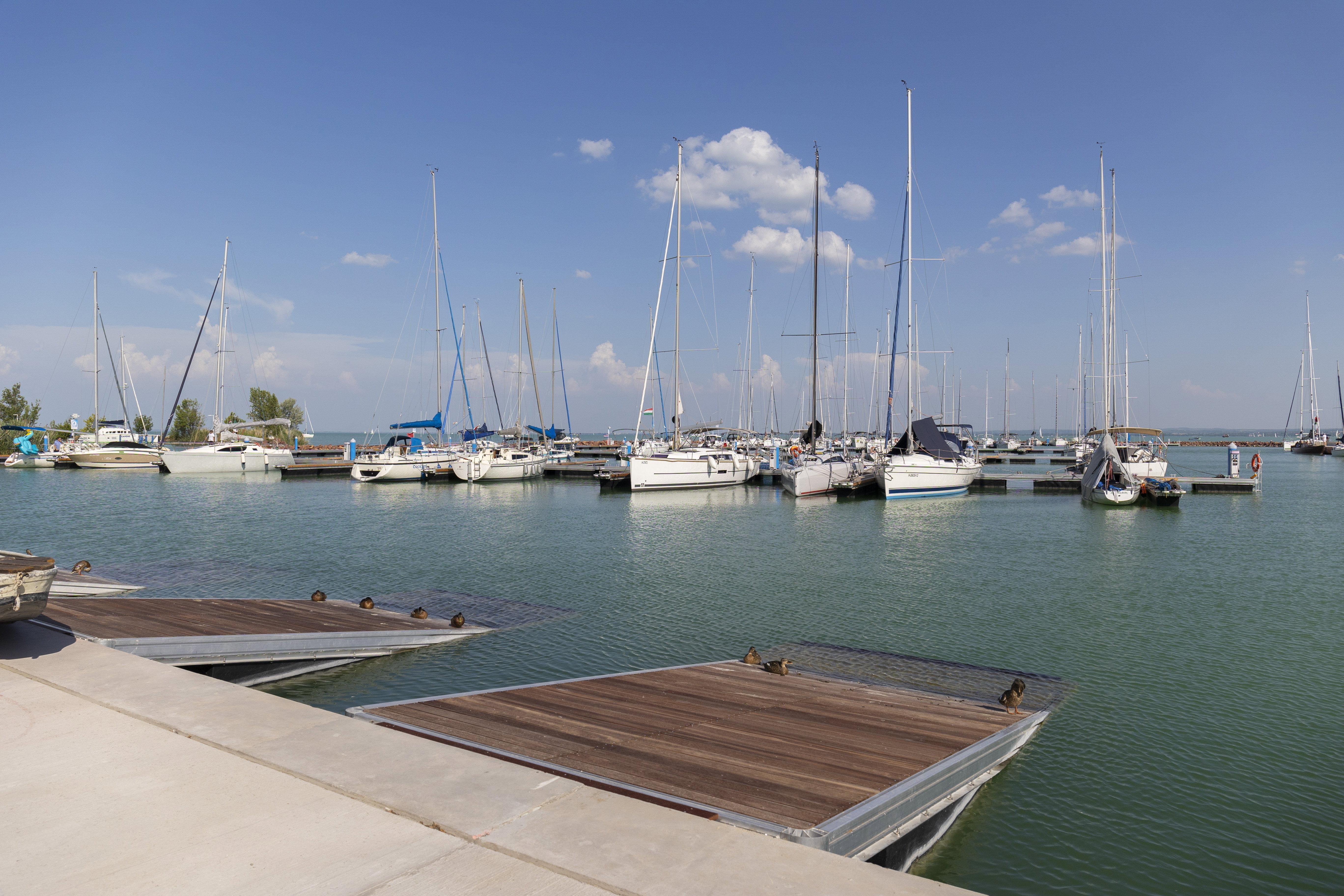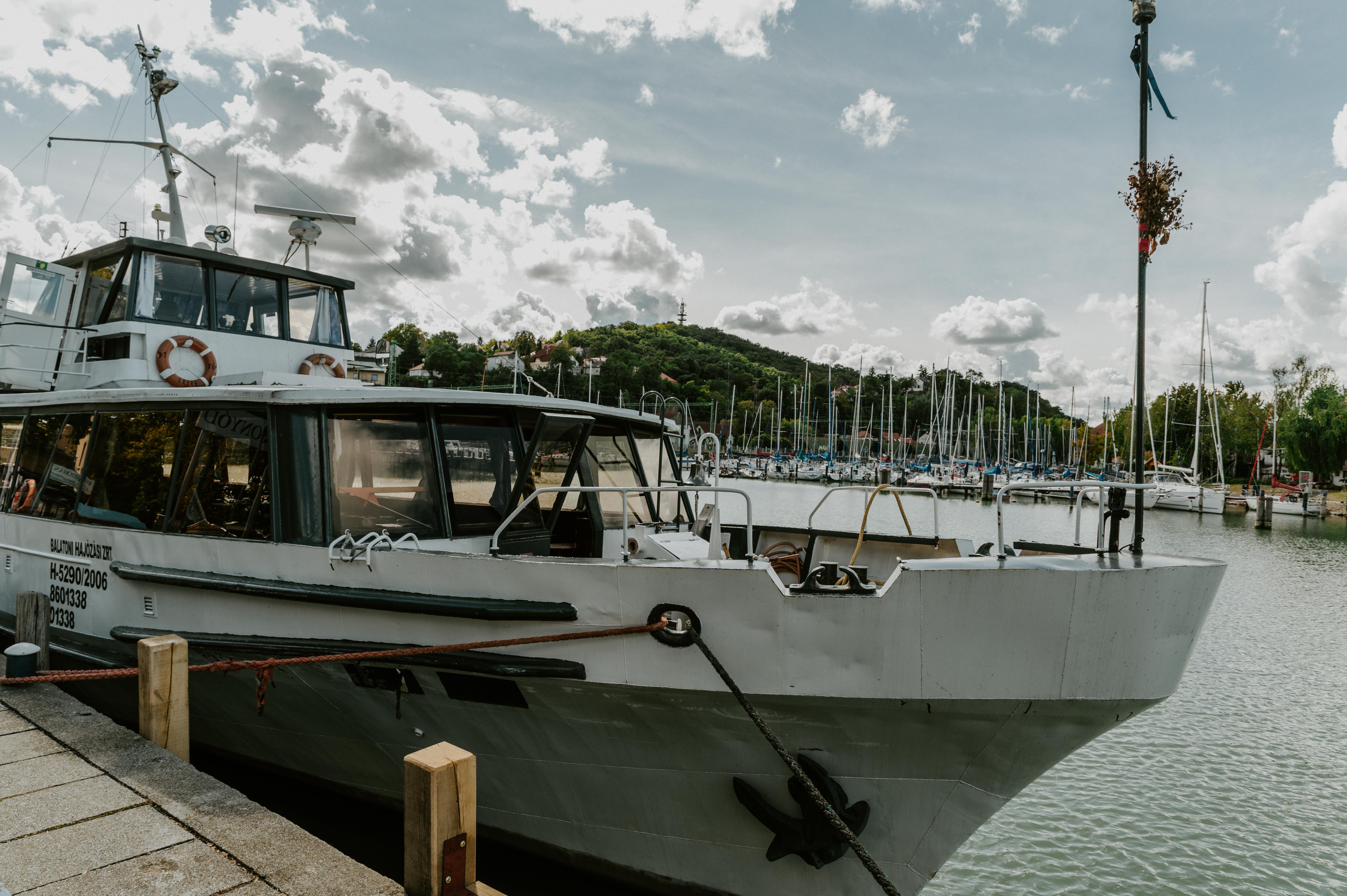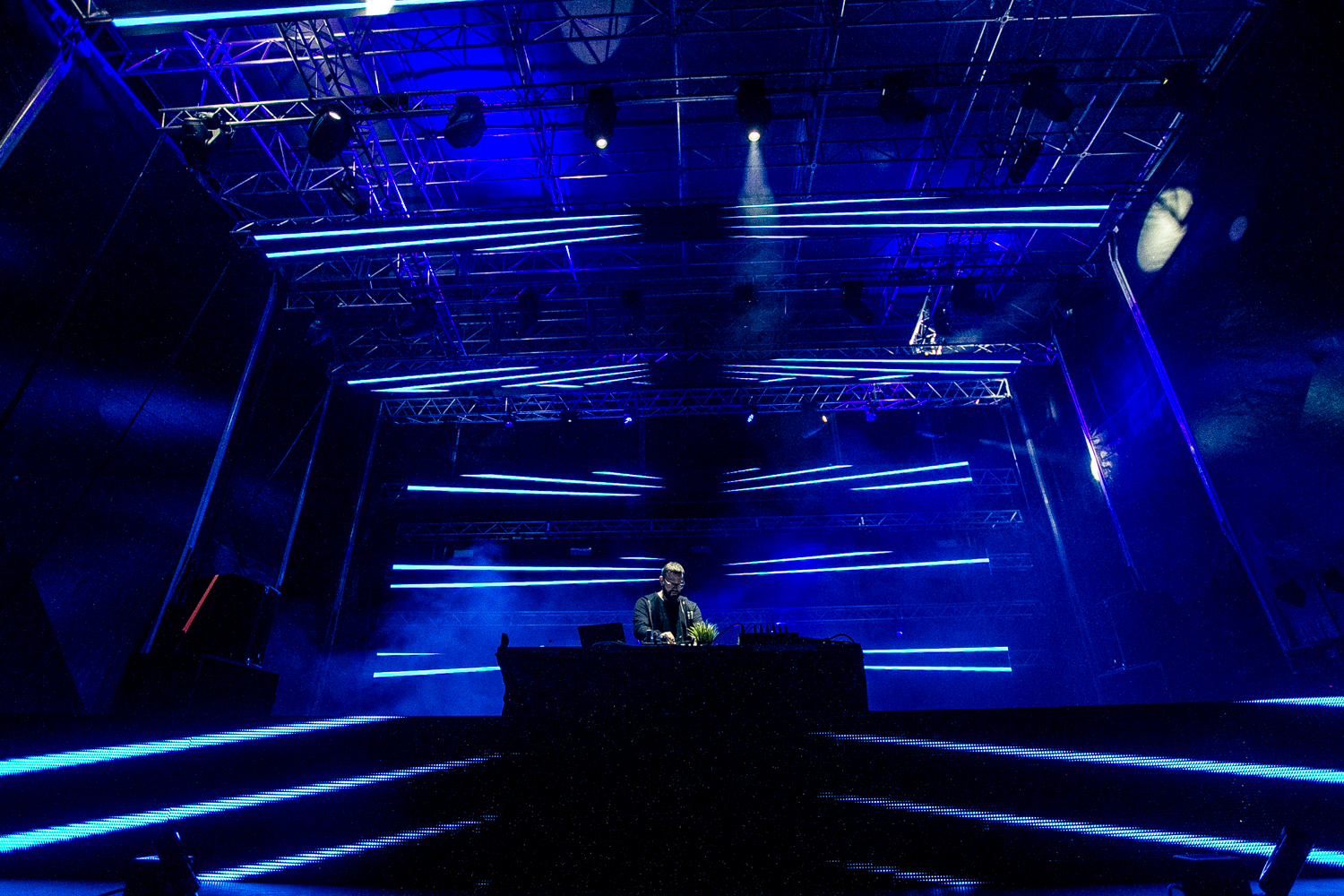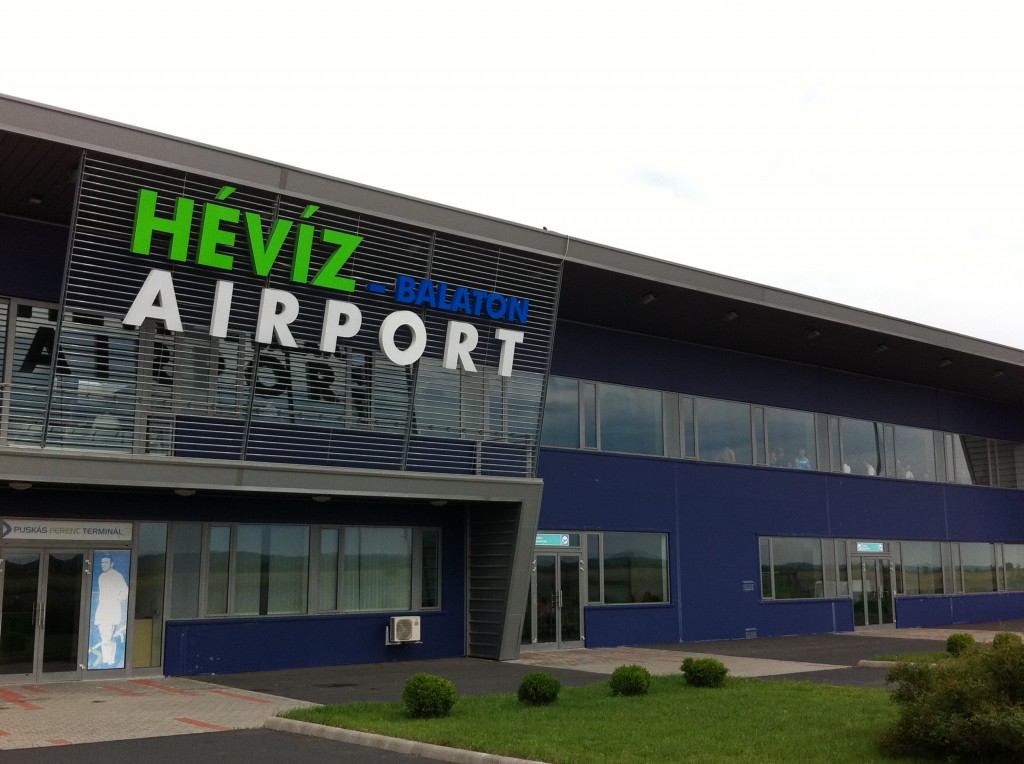Andreas from Vienna used to spend his winters working at the hottest tropical holiday resorts, and he had no intention of moving to Lake Balaton, but when he first drove to Tihany on the road running along the shore in 1988, he fell in love for good. Since that life-changing day, he and his Hungarian partner Hetti have managed a water sports center at Club Tihany. They spend much of the year at the lake, and for an eternal summer they travel to South Africa in the wintertime.
WLB: When was the first time you visited Balaton?
AN: I first came to Hungary in 1985. We were on our way to Greece, but we stopped to meet up with a Hungarian friend of ours, who had a surf school in Alsóörs at the time. What a life he had! Hake, grilled sandwiches, corn on the cob, fröccs and pálinka – that’s the Balaton version of the high life for me. Nowadays, it’s a bit more difficult to find truly awesome places, but there are still quite a few of them around.
WLB: What was so attractive about Balaton that made you move here and start a new life?
AN: The beautiful hills, the wines, the food, the friendly people, and the lake itself, of course. I love being on or around water.
WLB: North shore or south?
AN: I prefer the north shore because of the undulating landscape and such first-class locations as Balatonfüred, which have lots of events, bars and restaurants and even some of those genuinely “retro” establishments. Nevertheless, Tihany remains a firm favorite for me because of its history, its geography and its beauty. This is the most central town as well.
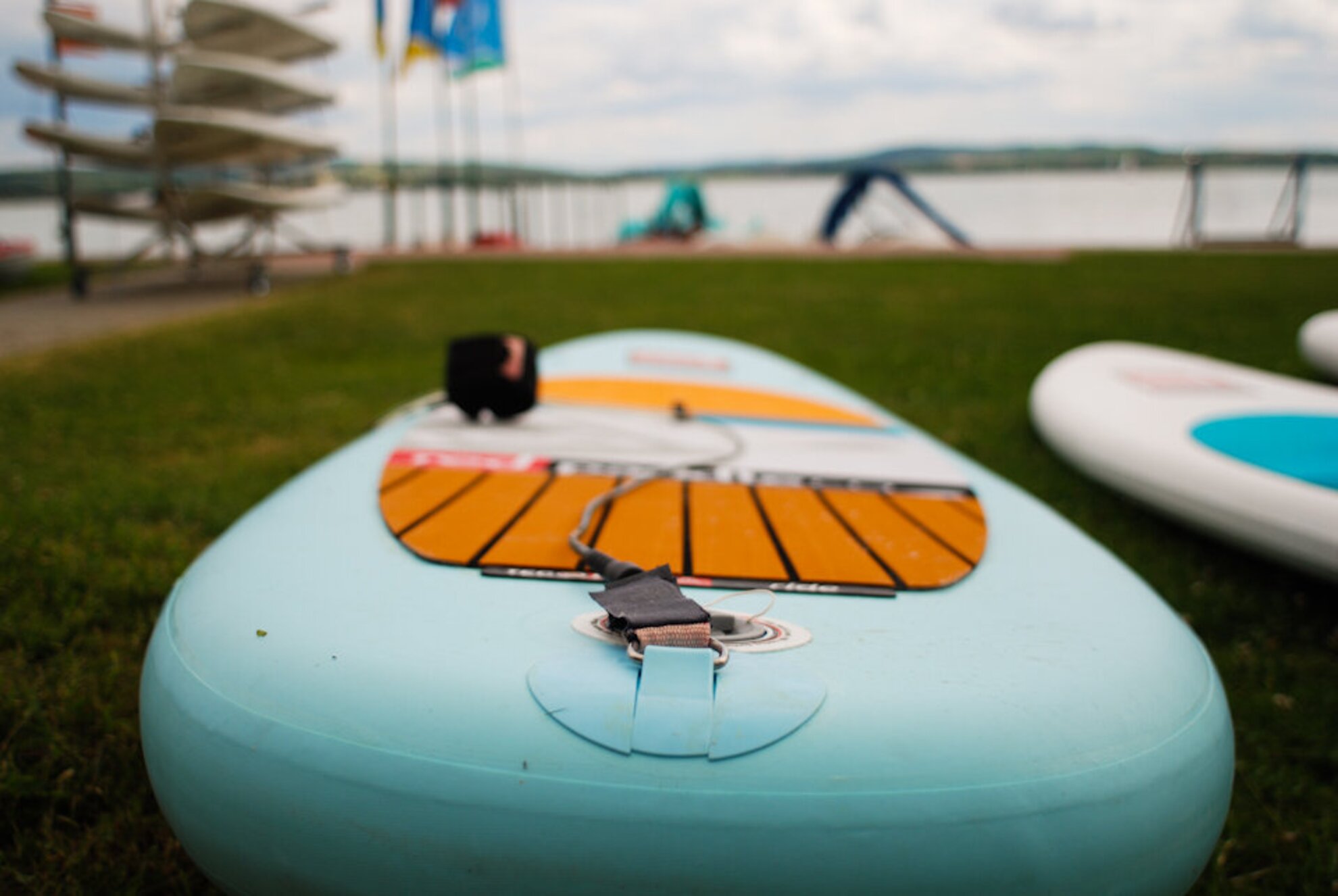
WLB: You run your own business in Tihany. What do you do exactly?
AN: I manage a water sports center; our main profile is windsurfing, sailing, SUP and charter yachts. Before 1988, I worked as a windsurf and sailing instructor at Lake Neusiedl. My boss at the time owned the windsurf and sailing school at Club Tihany, but he was looking to sell it, I, however, wasn’t particularly keen on moving to Hungary. Eventually, his wife brought me here on a two-day trip – she knew I would immediately change my mind once I saw the place. I can still remember what it was like to catch a glimpse of the Tihany Peninsula for the first time. Driving along the shore was like being in a dream, the beautiful landscape was absolutely captivating. I’ve been here ever since, for the past 26 years – Hetti and I met here. I love it.
WLB: Is it enough to make a living by?
AN: Unfortunately, the season is way too short for us to generate enough money for the whole year. We generally spend seven months in Tihany, and the rest of the year in Cape Town, South Africa, doing the same thing we do here at Balaton. The timing is perfect: summer in Cape Town begins exactly when it ends in Hungary.
WLB: Where else have you lived abroad?
AN: I’ve spent every summer abroad since the age of 18. I’ve worked in a lot of countries: Australia, New Zealand, the Maldives, Thailand, Fiji, the Dominican Republic, Costa Rica, Indonesia, Hawaii and Micronesia. All of them were extremely stunning, but nothing compares to Balaton.
WLB: What do you think about the situation of expats? What is it like to move here from abroad and start a business?
AN: I have lots of pupils from Germany, Austria and the United Kingdom who came to settle down here. Most of them are retired. All of them love living here, but they have a hard time grasping the language. Even so, there’s always a friend or a friendly neighbor who is happy to help.
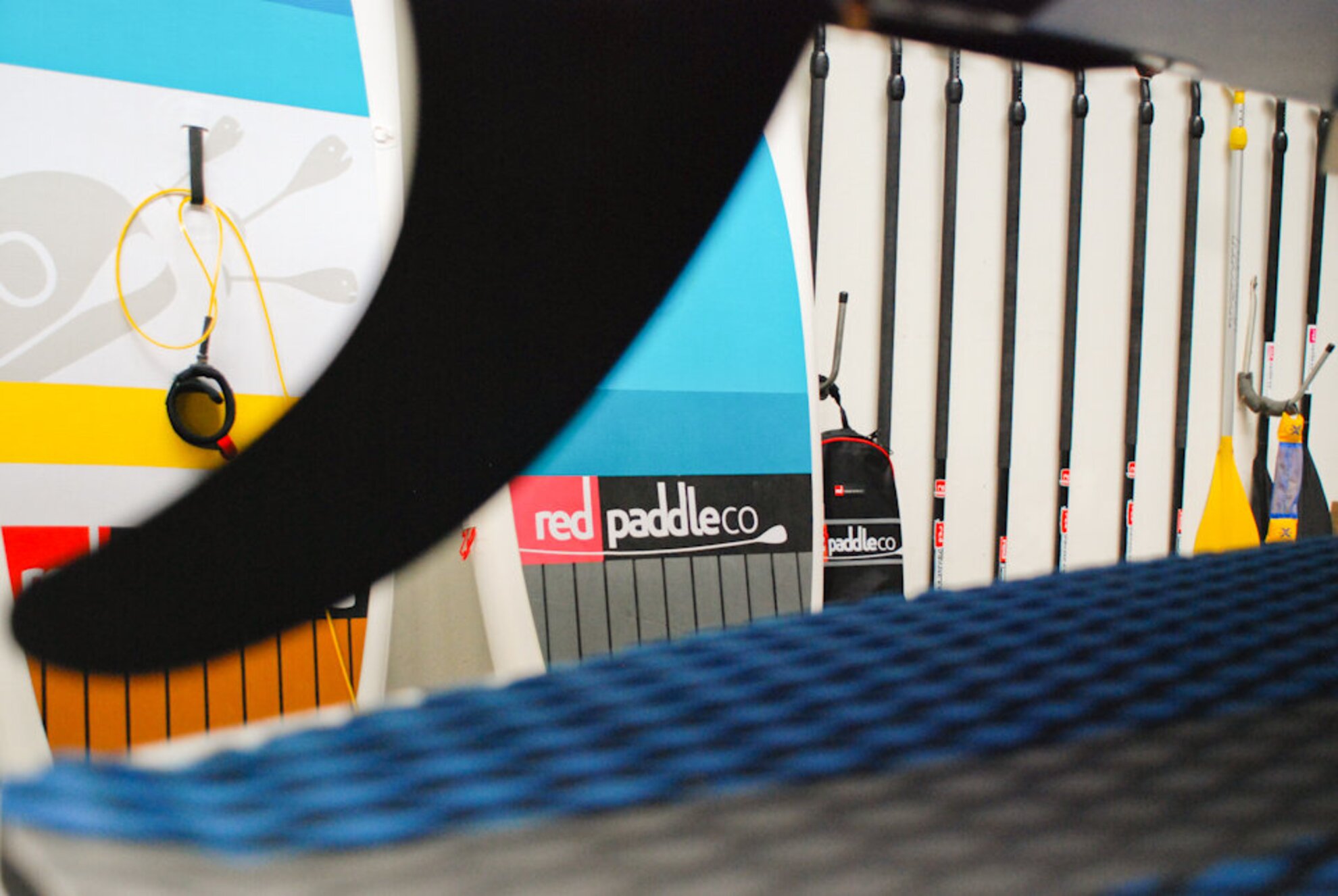
WLB: How are you getting along with the Hungarian language?
AN: My friends always tell me how fluent I am in Hungarian, but my vocabulary has its limits, and I’m not satisfied with my grammar. There are lots of complicated grammatical rules: there’s always an exception, and every exception has a further exception. It’s crazy. At first, I started learning the language from a book on my own, but I didn’t get very far. In 1991, I began attending a language course in Vienna, but in the end I only went to three classes because a friend of mine asked me to go traveling with him in Honduras, so that was that. Two years later I did another intensive course in Vienna: I met with a private tutor for four hours every day for month. That worked a little bit better, and from then on making progress was much easier.
WLB: What is your favorite word in Hungarian?
AN: Gyújtógyertya (meaning spark plug)! This was a word I came across at the very beginning of my textbook, in Chapter 3. I tried to use it to impress all of my Hungarian friends because it was the single most difficult Hungarian word I had ever seen.
